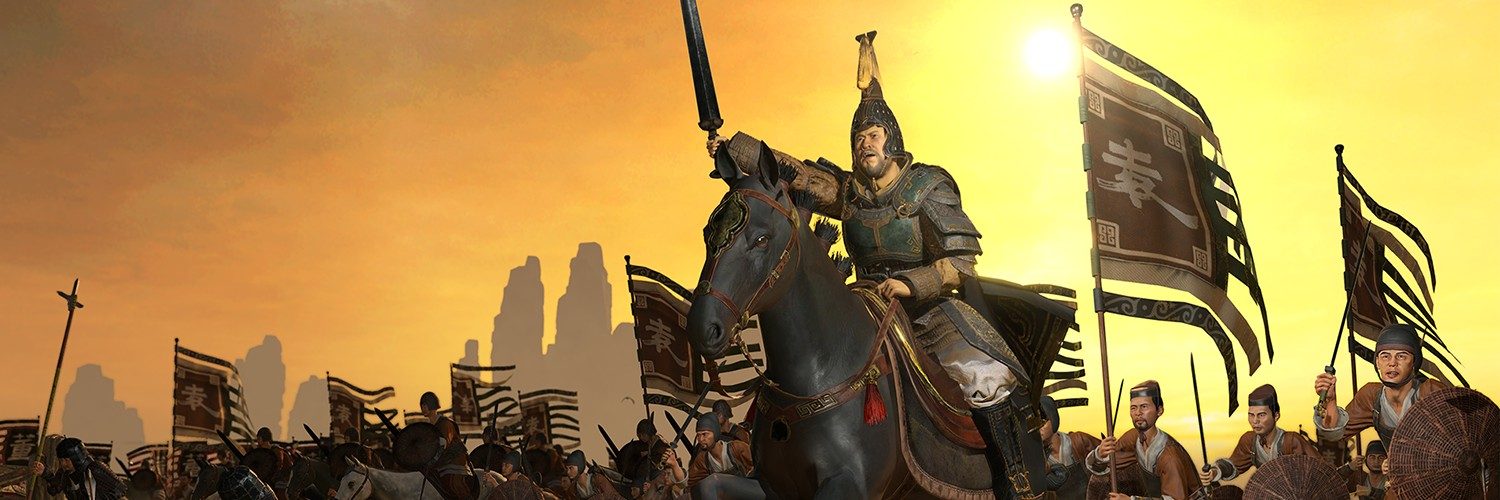As ancient China descends into chaos, it takes a hero to unite the people and bring an end to all the misfortunes that have befallen the land, and in Creative Assembly‘s Total War: Three Kingdoms, that task is yours.
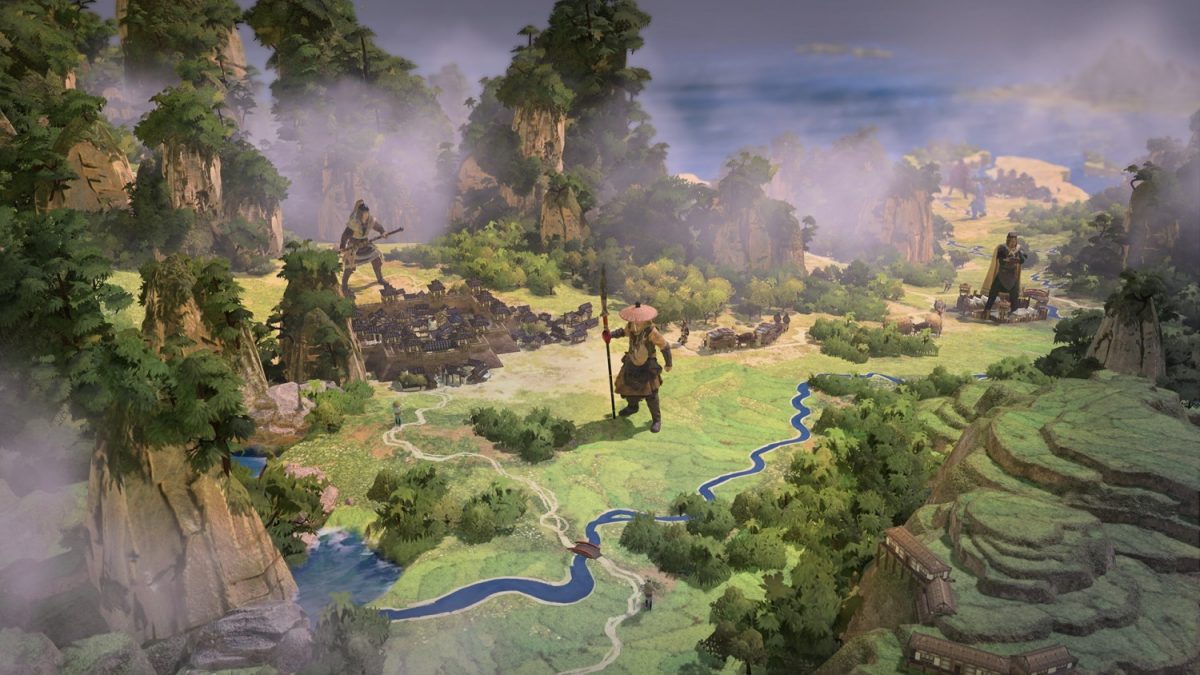
Fully embracing its source material, Luo Guanzhong’s Romance of the Three Kingdoms, this particular entry in the Total War franchise takes on a less than historically accurate look, but if you’ve read the books, you know what you are in for.
Your generals and leaders, all with their complicated histories and relationships, are fearsome warriors capable of holding off entire armies. Wield legendary weapons and ride into battle with famous steeds, as troops never seem to tire while the larger-than-life generals duel like in fighting games.
If such epicness is not something you appreciate, then Total War: Three Kingdoms might not be for you. Of course, you can turn the experience into a more systems-based one of old by using Records mode, but Romance mode just feels right. A retelling of history that is full of memorable moments, without sweating too much on the nitty-gritty.
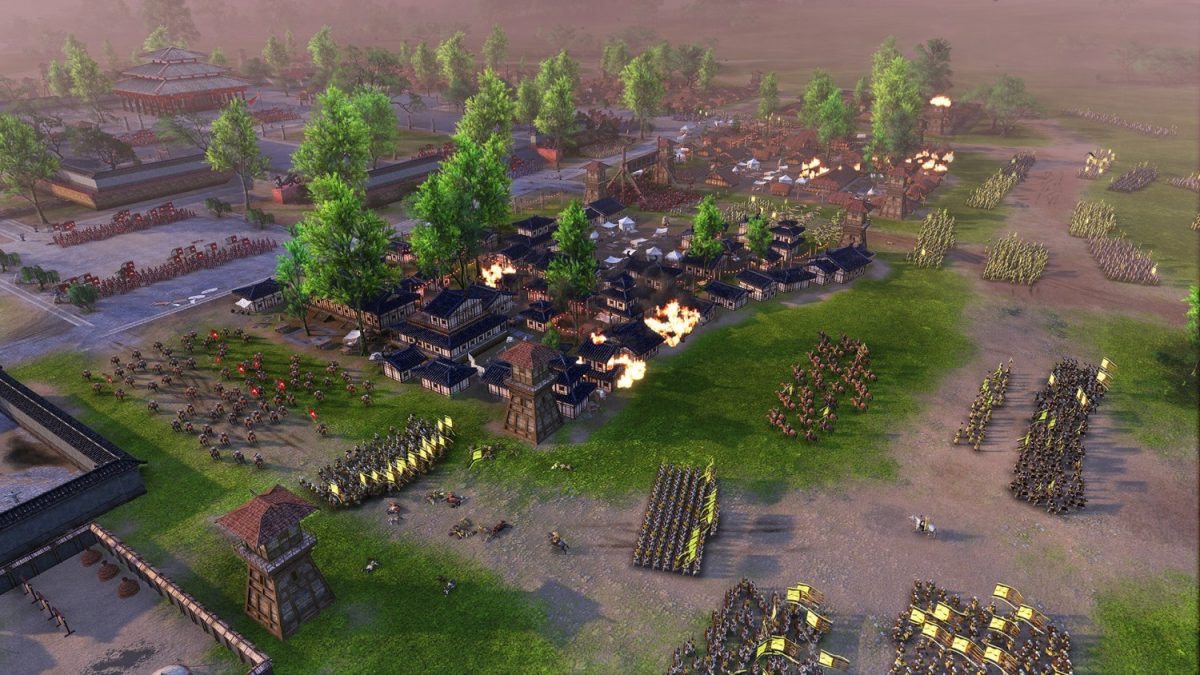
That said, the complexity of a Total War game remains, even though they have been gradually simplified since Warhammer. Besides worrying about your income, food production, order, there is also the satisfaction of your characters to look after.
You can curry favour through gifts and court positions, but nothing beats being on the winning side. Let dissatisfaction fester and you could be looking at an uprising and civil war, and even your heirs are not immune to jealousy and anger.
Both espionage and diplomacy are key components of statecraft, with your spies getting a whole other section dedicated to undermining your enemies. Poison their supplies, sabotage their troops, a devious spy can even integrate themselves into court positions to sow even more discord.
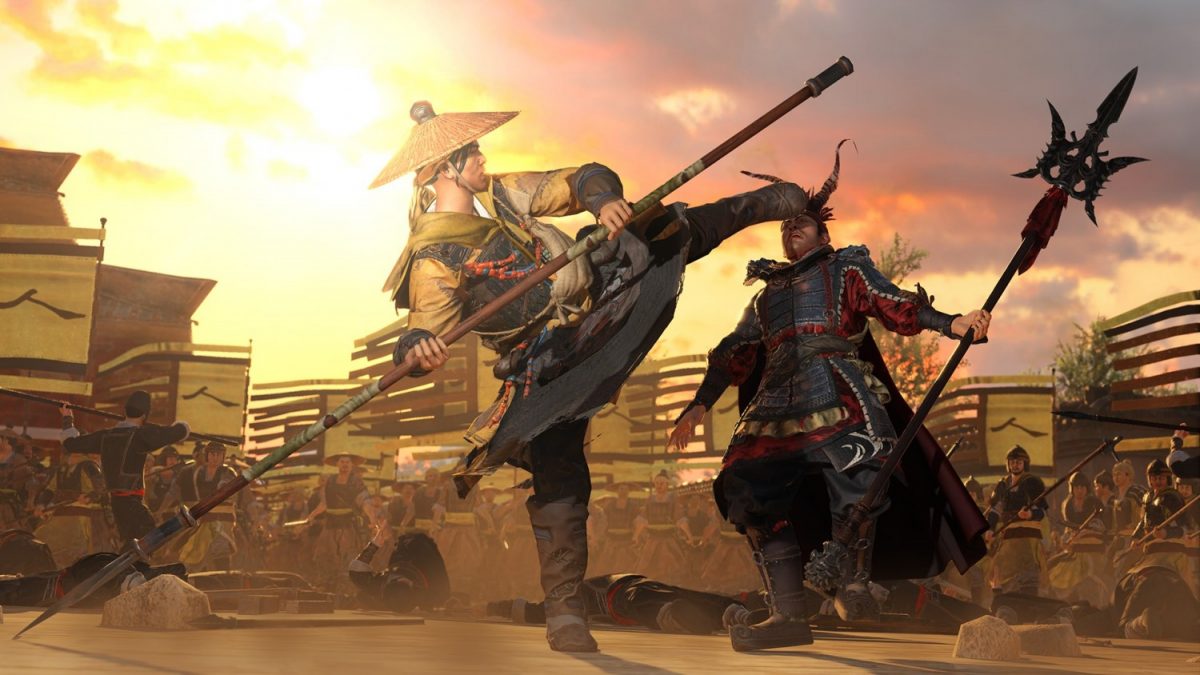
Diplomacy gets a welcome facelift, removing all doubt over your demands and requests to your fellow lords. The transparency may be off-putting to some purists, but it is so much more useful to see what you need when you are trying to push through a deal.
Be it money, trade, territories, even marriages, there is a value attached to each that will help ensure everyone steps off the negotiating table satisfied.
It gets even deeper when you consider the various partnerships that can be formed. From non-aggression pacts, military alliances, to coalitions and unions, there is a lot of room to manoeuvre your enemies and allies on your path to dominance.
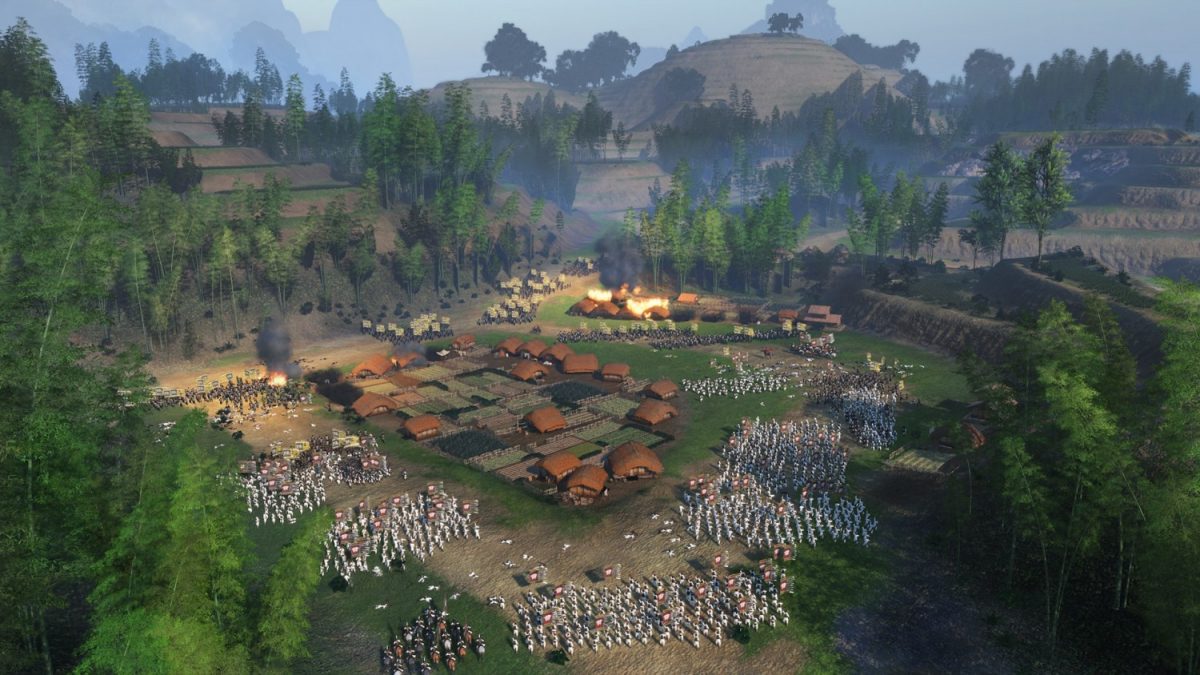
Coalitions function like a de facto democracy, with each member getting a vote in deciding who gets let into this exclusive group. This tends to work against the more warmongering of leaders, and feels right in place with the thematic nature of Total War: Three Kingdoms.
It is no surprise to see two huge coalitions made up of several factions waging war towards the end, as territories change hands, generals perish, and smaller factions get swallowed up or taken over.
The overall improvements to diplomacy are awesome, and brings it up to par with all the other systems that have been improved over the years. With the AI using diplomacy as competently as human players some times, it adds a whole new dimension to the Total War formula not seen in quite some time.
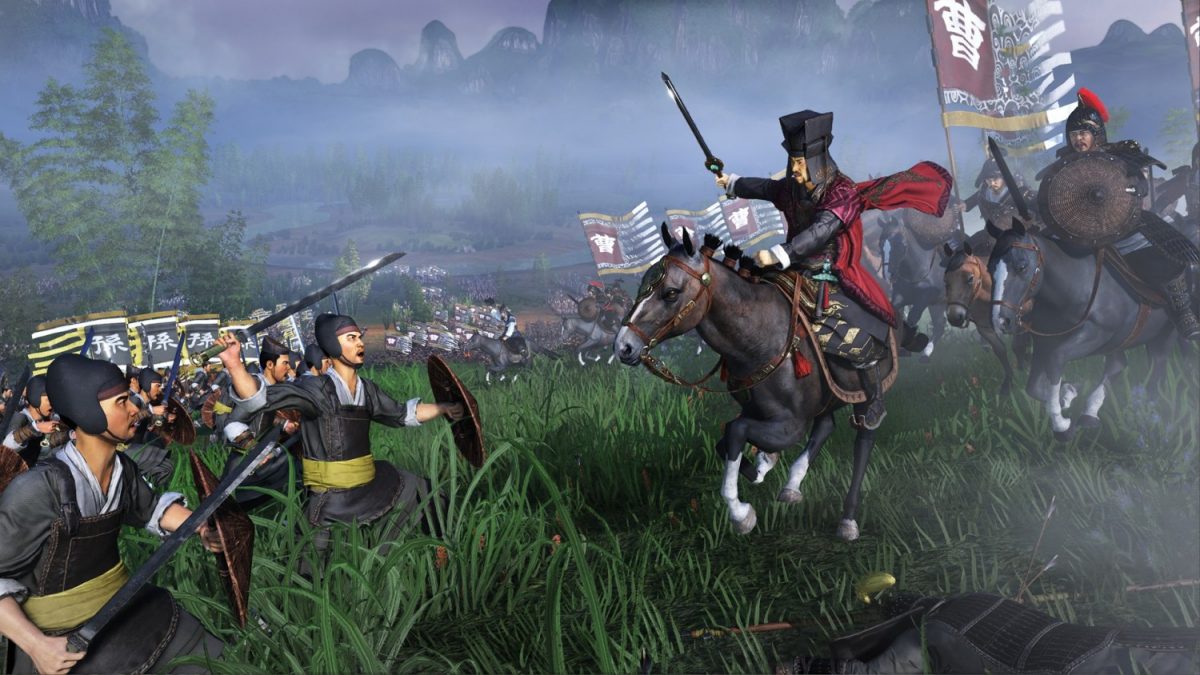
All these start from you choosing an individual leader right off the bat, be it prominent leaders like Cao Cao, Liu Bei, or Sun Jian, or bandits and tyrants like Dong Zhuo. Each comes with their own stake in unifying China, and starkly different circumstances.
Cao Cao, who is recommended as a choice for beginners, feels the most familiar, starting you off with a decent settlement and an army like most Total War games. If you side with Liu Bei, however, you will have legendary generals by your side but no place to call home, not until you defeat the nearby Yellow Turbans.
Each leader brings their own tweak to the experience as well. Cao Cao can accumulate credibility points that can be used to influence the relationships between other factions, even igniting war. Meanwhile, Sun Jian’s heroism score can affect how satisfied your retainers are and how much troops cost.
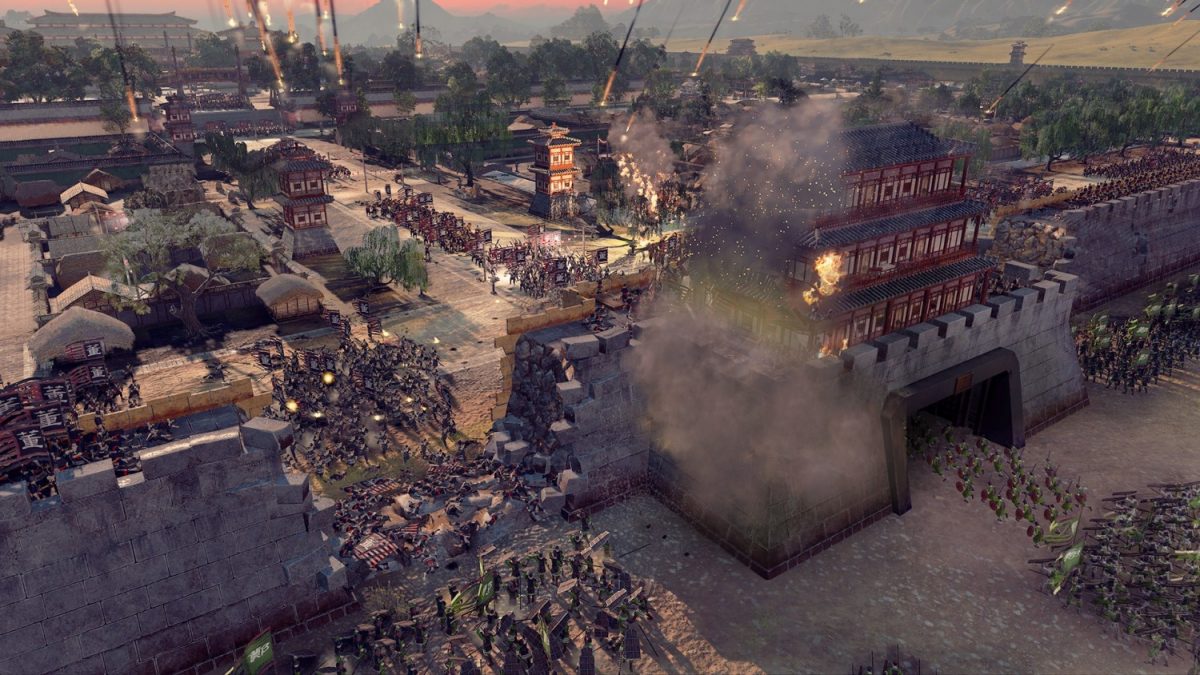
Being a leader is about much more than that, however. It is a fine art of balancing the many different aspects that demand your attention during every turn.
The population of settlements are key to replenishing armies quickly, but too many people lead to dissatisfaction and a drop in public order. Buildings give different bonuses, such as increased income, prestige (key to unlocking higher ranks and court positions), food production, population growth, and more, but with limited plots of lands, the hard choice is yours.
While there are not too many buildings to be overwhelming, the sheer number of settlements you will be in charge of as you move towards the end can be a real chore to manage. Although you can assign members of your court to certain settlements for bonuses, no one can take over management for you.
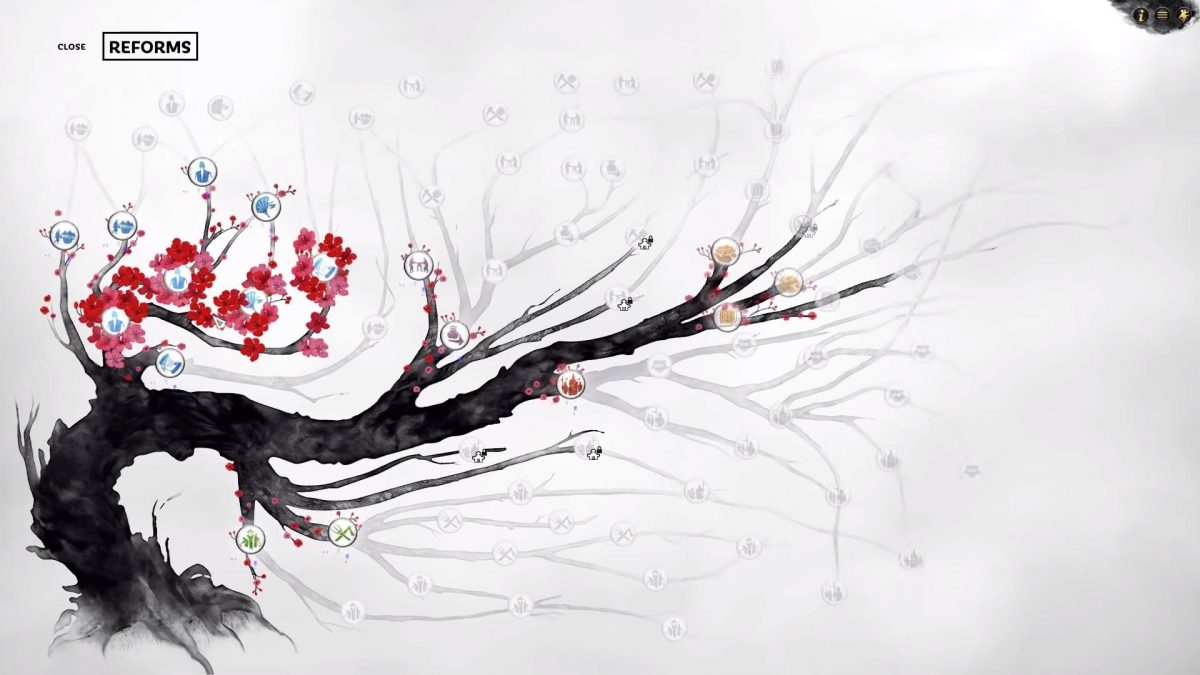
Additional units, bonuses, and improvements can be unlocked as you progress along Total War: Three Kingdom’s tech tree, an actual blossoming tree that sprouts blossoms as you choose your path. To be fair, while they do change things up a little and aid in your progression, these upgrades do tend to matter little in the grand scheme of Total War, definitely not as much as the battles themselves.
And it is these large scale battles that are truly the highlight of Total War: Three Kingdoms. From choosing your starting positions to configuring formations, formulating plans and attacks, it is immediately more appealing than dealing with the management aspect of the game.
Watch in awe as volleys of arrows and crossbow bolts sail through the air, cavalry charging into the fray, while the swordsmen and spearmen band together in a bid to survive. All while your generals provide passive bonuses and unleash their flashy moves. Duels are nail-biting affairs, as the troops surround two clashing generals.
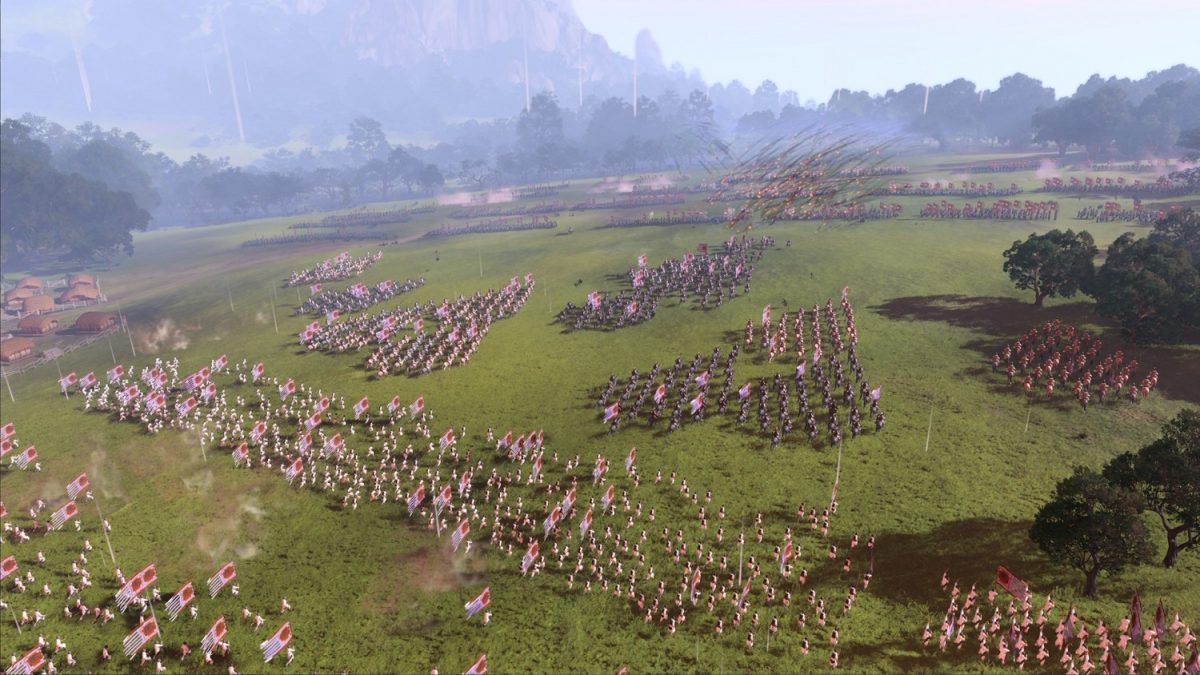
Each army is made up of three generals, each with a retinue of six units maximum. The nature of things tend to fall towards a balanced army of cavalry, infantry, and ranged attackers, although you can always go for a specialised army.
Each battle will see your units grow, your generals improve, and even build rivalries and friendships. It feels like a mini-RPG thrown in, with equipment and stats making their mark as well.
It all looks bloody fantastic up high, but aside from your generals, the personality and animation of units can do with some polishing. It is understandable that the troops will not look that much different, but chopping at air and not responding to being shot with an arrow can be too much to take at times.
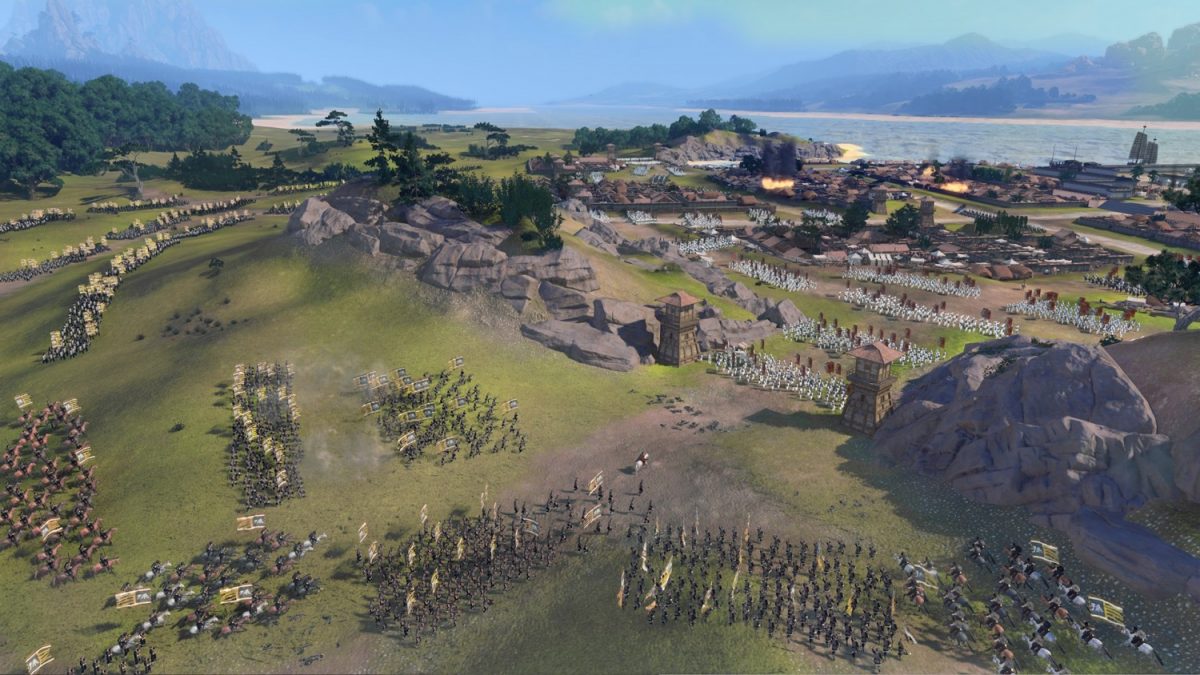
In addition, night and winter battles are feasts for the eyes, featuring some of the best lighting and effects to date in a Total War game. Sieges remain fun and exhilarating, and if you take the time to pause and look around, there is plenty going on in the background to appreciate.
Unfortunately, the lack of naval battles is a major omission, considering the importance it has in some of the more iconic battles in Romance of The Three Kingdoms. Once on water, battles can only be resolved automatically, and no one wants to auto-resolve the battle of Chibi.
There will be plenty of battles as you seek to conquer the whole of China, but this is also one of the issues dogging the endgame experience. Winning should not be an easy affair, and you would expect plenty of blood to be shed as warlords race to determine who would be emperor.
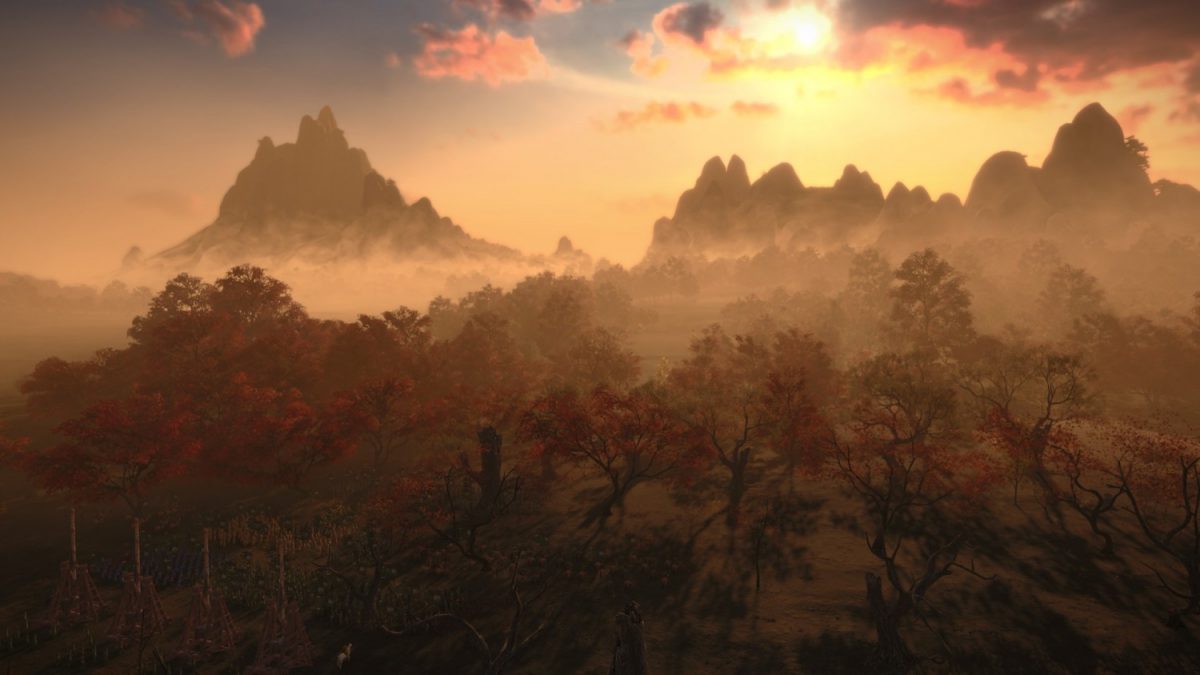
However, the AI can sometimes be a little too quick to surrender and not put up a fight, which is definitely not a trait one would associate with the heroes of that age. That is not to say the victory is not well-earned, but it can be anti-climatic considering the source material. Thankfully, there is always the option of not accepting surrender and putting your enemies to the sword.
It is hard not to appreciate Total War: Three Kingdoms, considering the affinity we Chinese have for the original tale. Creative Assembly has brought plenty of improvements and tweaks that make this a much better experience than previous titles, yet, problems like clunky animations and AI behaviour persist.
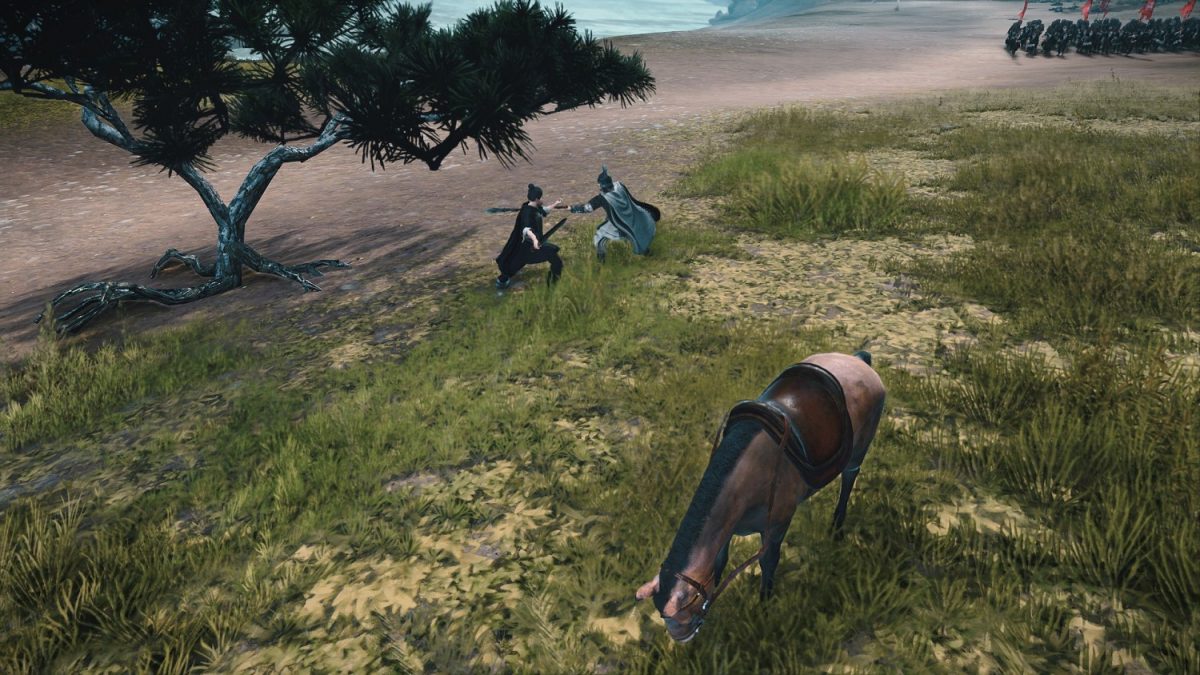
Total War: Three Kingdoms is without a doubt a great strategy game, complete with a captivating setting and memorable mechanics and systems, but it is still not enough to look past the issues that have been familiar to the series in recent times.
Total War: Three Kingdoms is available now on Steam for S$59.00 or cheaper via our preferred video game retailer Qisahn.
GEEK REVIEW SCORE
Summary
Become a hero for the ages, or succumb to the minutiae of management in one of Total War’s more enticing entries.
Overall
8.5/10-
Gameplay - 8/10
8/10
-
Story - 10/10
10/10
-
Presentation - 8/10
8/10
-
Value - 8/10
8/10

